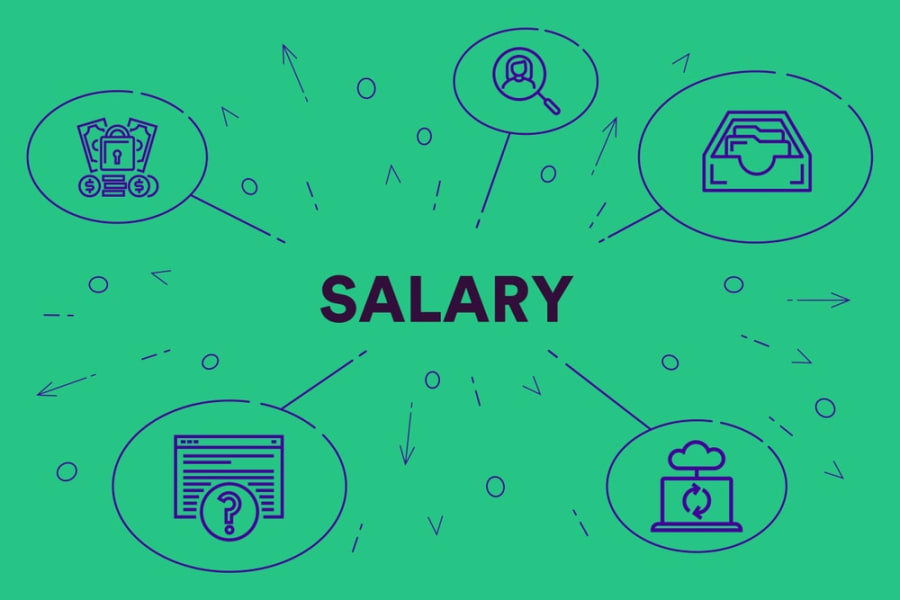
Life has this habit of making you to expect something and then giving you something entirely different. Perhaps the biggest example of this universal rule is stark difference in the salary that you might expect to have and the actual amount of money that printed on one’s salary slip. Then, the inevitable question comes to your mind: on what basis is your net salary calculated and displayed on your salary slip? Well, the best way to understand that is to take a careful look at the salary slip and the various deductions displayed there.
Before we move on towards the various deductions made from your gross salary to get your net salary, it is important to remember that your gross salary is the amount without any deductions, whereas your net salary is the amount arrived after subtracting various expenses and taxes from your gross salary. This has to be always kept on mind while you’re examining your salary slip.
1. House Rent Allowance:
Also known as HRA for brevity’s sake, House Rent Allowance is provided to all employees by their respective employers, in order to meet the employee’s accommodation expenses. Otherwise, HRA is not applicable to those salaried employees who either stay in their own house or in a rent-free residence. If you live in a rented house and you pay rent, do try to claim HRA exemption if you desire to save up on the amount of tax you’re liable to pay.
- Employees’ Provident Fund:
Contributed in part both by the employee and the employer, the deduction from your salary for your provident fund is something mandatory in nature. This is because Provident Fund offers not only tax-related benefits but also helps in meeting expenses after retirement. - Professional Tax:
This is a tax that is levied by the state government, and it usually varies according to your income. You should just keep in mind that the maximum permissible deduction under the Professional Tax scheme is 2,500 rupees. - Tax Deducted at Source (TDS):
A mandatory deduction levied by the government, tax deducted at source (TDS) refers to the deductable amount from your salary directly by your employer that corresponds to the Income Tax slab you’re currently in, based upon present income. - Conveyance or Transport Allowance:
Your employer deducts your transport costs from your salary, as they pay you this allowance from their own pockets. This allowance is basically akin to a compensation for the amount you incur on commuting between your residence and your office. You can even avail a tax exemption, amounting up to almost 1,600 rupees per month. - Medical Reimbursement:
With this, you should be to submit medical bills for all medical expenses you have incurred throughout the year, and have the amount reimbursed. What’s more, you are able to get a tax exemption of 15,000 rupees per year on this. - Education Cess:
In order to fund primary and secondary educational initiatives for children, the government levies a tax called Education Cess. Ordinarily, the amount this tax charges is at least 3% of your Income Tax amount. - Fuel Reimbursement:
If you have a car of your own, you can claim reimbursements on your petrol/diesel expenses, provided you submit the bills for the same. Companies may or may not provide this allowance to all of its employees. - Telephone/Mobile Expenses:
Although not all companies cover this allowance, those that do definitely require the submission of your telephone/mobile bill before they actually reimburse this amount. Normally, you do not need to pay taxes on this particular expense. - Food Coupons:
If your employer provide food coupons or vouchers, then they are usually added as a part of your salary slip. Generally, there is a tax exemption limit, up to at least 50 rupees per meal. - Leave Travel Allowance:
This is an amount paid by the employer for an employee’s travel within the confines of the country. This is ordinarily a part of your salary package and the amount you would claim as Leave Travel Allowance (LTA) is tax free.
These are, in brief, the various components in your salary slip, whose amounts are deducted from your gross salary in order to arrive at your net salary that is payable to you by your company. Understanding the nature of these components is very beneficial to you as then you would be able to keep a track of the deductions. You would be in a position to note any unnecessary subtractions and even sue your company, if these extra charges are continued despite your protestations. Knowing your salary slip is therefore having more power and the ability to maintain financial discipline and manage your expenses accordingly.
So the next time you are given your salary slip, don’t throw it away. Keep it with you as an important piece of documentary evidence. Try to observe and analyze the components of your salary slip and ascertain whether or not it is consistent with your financial statements. In this way, you as an employee would come a long way at efficiently managing finances and would be able to manage various aspects of your financial life efficiently.
If this article has helped you, you can count on us. We have many helpful articles like this where we lend a helping hand to people like you in understanding complex financial issues and breaking them down into a manner that is easily understood and simple to follow. Head onto our website for more such tips and helpful articles that would enable you to have control over the money in your pockets. A full pocket is always an insurance against any kind of trouble you might face in the future. So, don’t wait any longer, head on to our website at https://www.chqbook.com and check out all the amazing content that has to do with making you rich even within the bounds of your salaried income.
